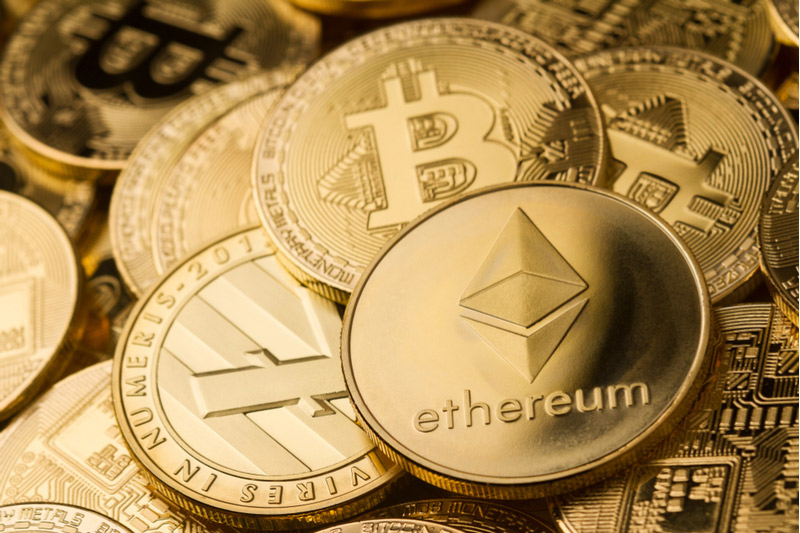- Crypto space continues to evolve with tech that can change the world.
- Decisions made within DAOs are enforced by smart contracts.
- UNI, MKR, and ILV are the top Governance tokens.
As the cryptocurrency space continues to evolve, new technologies emerge that have the potential to change the world. DAOs, or Decentralized Autonomous Organizations, are one such technology.
DAO stands for Decentralized Autonomous Organization – decentralized meaning there is no central authority, autonomous meaning the ability to govern itself, and organization meaning a group of members. Put together, DAOs are networks of members who control the workings of an organization together, without a strict hierarchy. DAO members control their organizations through proposals, for which members vote by holding governance tokens.
Decisions made within DAOs are enforced by smart contracts, which follow operation procedures that are encoded into blockchains, and automatically act upon passing proposals. For example, the Ethereum Foundation uses a DAO to propose and vote on Ethereum protocol changes. If a proposal passes, pre-selected developers are automatically paid in ETH and given access to developer tools.
The key aspect that makes DAOs so revolutionary is trustlessness – human-to-human trust isn’t required in order for members to know that organizational rules will be enforced and promised actions will be acted upon. In the Ethereum example, proposals that are passed and funded cannot be stopped or disrupted by influential members within the foundation, such as Vitalik Buterin (Ethereum co-founder). Ethereum.org explains further:
Starting an organization with someone that involves funding and money requires a lot of trust in the people you’re working with. But it’s hard to trust someone you’ve only ever interacted with on the internet. With DAOs you don’t need to trust anyone else in the group, just the DAO’s code, which is 100% transparent and verifiable by anyone. This opens up so many new opportunities for global collaboration and coordination.
As buzz about DAOs spreads, cryptocurrency enthusiasts are discovering the implications that DAOs have for governance in business and other organization types.
In business, DAOs can be used to more evenly distribute power between employees by granting them varying amounts of governing tokens (either equally distributed or based on factors like seniority or title) and allowing them to vote on business strategies, employee pay and benefits, business-to-business agreements, and new lines of products and services.
DAOs can also be set up to automatically manage and compensate employees based on their performance: high-performing teams can be automatically and transparently compensated, while low-performing teams can be reassigned to different managers or put on performance improvement plans.
Individuals that do not directly work for DAOs can also affect their operations by purchasing governance tokens from members and voting on proposals, directly providing input from an outsider’s perspective. DAOs allow project teams and their communities to work closely together, with developers setting visionary boundaries and communities guiding project development.
Through DAOs, netizens with shared visions can come together to build great things and make an impact.
Given the limitless potential of DAO’s, there is a large variety in governance tokens and their uses. Here are some popular examples that many crypto enthusiasts are familiar with:
- Uniswap (UNI): Uniswap is a decentralized exchange that supports hundreds of tokens, including new and emerging projects. Uniswap’s native UNI token can be used to vote on changes made to the exchange, such as which cryptocurrency networks (Ethereum, Matic, etc) it supports.
- MakerDAO (MKR): MakerDAO is a DeFi (decentralized finance) platform that enables users to deposit collateral and take out loans against that collateral. MakerDAO’s native MKR token is used to vote on DeFi protocol changes and maintain the peg of MakerDAO’s own DAI stablecoin.
- Illuvium (ILV): Illuvium is a AAA-quality monster-capture-combat game. Players can use Illuvium’s native ILV token to vote on council members, new features, and game balance.
A newer governance token that’s been running up the charts is SBP, the token for ShibaPad. ShibaPad is a community-driven launchpad on the Binance Smart Chain, goal-set on creating a thriving “woof ecosystem”. SBP tokens can already be used by holders to vote on critical decisions regarding ShibaPad, though full DAO functionality will be coming soon with ShibaPad’s second version of the SBP token, SBP V2.
ShibaPad members will be able to use their governance tokens to vote on and crowdfund new projects, and will have earlier access to new projects than outside investors. Additionally, ShibaPad will support its own native NFTs.
Here is a closer look at ShibaPad’s tokens:
- When the DAO fully releases, ShibaPad will airdrop SBP V2 tokens to all SBP holders equaling the number of SBP tokens in their possession.
- All buys will have a buy tax: 2% will be added to LP pools, 4% will go towards development. 4% will go towards marketing, and 6% will go to token buybacks
- All sales will be taxed an additional 2%, which will be redistributed to holders based on their holdings.
- Holders will be able to stake SBP tokens to earn more SBP.
Here are important points regarding ShibaPad’s launchpad:
- The launchpad will be the main source of profit for community members.
- Investors can use the launchpad to get early access to new projects, with various vesting and price options.
- BNB will be used to participate in project pools with reduced fees
- The amount of tokens that members hold will influence their fees and investment options.
- Community members will be able to use their governance tokens to propose and vote on new ideas, like swaps, games, and more!
